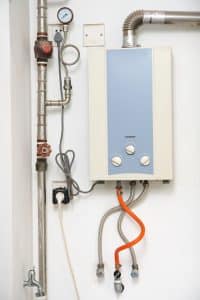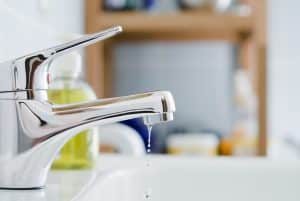Water heaters play a crucial role in our daily lives, providing hot water for various activities such as bathing, cleaning, and cooking. However, encountering a leaking water heater can be a frustrating experience that disrupts our routines and potentially causes damage to our homes. In this comprehensive guide, we will explore the causes behind water heater leaks and discuss effective solutions to address the issue promptly. Whether you’re a homeowner or a tenant, understanding the potential causes and knowing what steps to take can save you from unnecessary stress and expenses.
Table of Contents
- Introduction
- Signs of a Leaking Water Heater
- Common Causes of Water Heater Leaks
- Pressure Relief Valve
- Loose or Damaged Drain Valve
- Corrosion
- Failed Temperature and Pressure Relief (TPR) Valve
- Sediment Buildup
- Overheating
- Solutions for Water Heater Leaks
- Turn Off the Power and Water Supply
- Inspect the Pressure Relief Valve
- Check the Drain Valve
- Replace the Temperature and Pressure Relief (TPR) Valve
- Flush the Tank to Remove Sediment
- Adjust the Thermostat
- Seek Professional Help
- Conclusion
- FAQs
1. Introduction
A water heater leak can cause significant inconvenience and damage to your property. Identifying the causes behind such leaks and promptly addressing them is crucial to prevent further complications. In this article, we will guide you through the signs of a leaking water heater, common causes, and effective solutions to resolve the issue efficiently.
2. Signs of a Leaking Water Heater
Detecting a water heater leak early on can save you from potential water damage and expensive repairs. Keep an eye out for the following signs that indicate a leaking water heater:
- Puddles of water near the water heater
- Dampness or moisture around the unit
- Rust or corrosion on the tank or fittings
- Dripping sounds coming from the unit
- A sudden decrease in hot water supply
If you notice any of these signs, it’s essential to take immediate action to prevent further damage and minimize the impact on your daily activities.
3. Common Causes of Water Heater Leaks
Understanding the underlying causes of water heater leaks can help you diagnose the issue accurately. Let’s explore the most common causes:
3.1 Pressure Relief Valve
The pressure relief valve is a crucial safety feature of a water heater. It releases excess pressure to prevent the tank from exploding. If the valve malfunctions or becomes faulty, it may cause water to leak from the unit. Regular inspection and maintenance of the pressure relief valve can help avoid this issue.
3.2 Loose or Damaged Drain Valve
The drain valve, located near the bottom of the water heater, allows you to drain the tank for maintenance purposes. If the drain valve is loose, damaged, or improperly closed, it can result in water leakage. Ensuring the drain valve is tightly closed after maintenance tasks is important to prevent leaks.
3.3 Corrosion
Over time, corrosion can occur due to the constant exposure of the water heater tank to water. Corrosion weakens the tank and fittings, making them susceptible to leaks. Regular inspections and maintenance can help identify early signs of corrosion and prevent leaks before they occur.
3.4 Failed Temperature and Pressure Relief (TPR) Valve
The TPR valve is responsible for releasing excess pressure and temperature from the water heater. If the TPR valve fails to operate correctly, it can lead to leaks. Testing the TPR valve periodically and replacing it if necessary is crucial for preventing water heater leaks.
3.5 Sediment Buildup
Minerals and sediment can accumulate at the bottom of the water heater tank over time. This sediment buildup can lead to overheating and corrosion, causing leaks. Regularly flushing the tank to remove sediment is an effective preventive measure against leaks.
3.6 Overheating
Excessive heat can cause the water heater tank to expand and develop leaks. Incorrect temperature settings or a malfunctioning thermostat can lead to overheating. It’s important to ensure the temperature is set within the manufacturer’s recommended range to prevent leaks caused by overheating.
4. Solutions for Water Heater Leaks
When faced with a leaking water heater, there are several steps you can take to address the issue. Here are some solutions to consider:
4.1 Turn Off the Power and Water Supply
Before inspecting or attempting any repairs, ensure that the power supply to the water heater is turned off. Additionally, shut off the water supply to prevent further leaks or damage.
4.2 Inspect the Pressure Relief Valve
Carefully examine the pressure relief valve for any signs of leakage or malfunction. If you notice water dripping from the valve, it may need to be replaced. Consult the manufacturer’s instructions or seek professional assistance for valve replacement.
4.3 Check the Drain Valve
Inspect the drain valve for any loose or damaged components. If the valve is the source of the leak, tightening it or replacing it with a new one may resolve the issue.
4.4 Replace the Temperature and Pressure Relief (TPR) Valve
If the TPR valve is faulty or leaking, it should be replaced immediately. Contact a professional plumber to ensure proper installation and avoid any potential risks.
4.5 Flush the Tank to Remove Sediment
Flushing the tank helps eliminate sediment and mineral buildup, reducing the risk of leaks. Follow the manufacturer’s instructions or seek professional assistance for proper flushing techniques.
4.6 Adjust the Thermostat
Check the water heater’s thermostat settings to ensure they are within the recommended range. Adjusting the temperature as needed can prevent overheating and subsequent leaks.
4.7 Seek Professional Help
If you are uncertain about the cause of the water heater leak or if the solutions mentioned above do not resolve the issue, it’s advisable to contact a licensed plumber. Professional expertise can help identify and fix the problem effectively, ensuring your water heater operates smoothly.
5. Conclusion
A leaking water heater can be a significant inconvenience, but understanding the causes and solutions can help you address the issue promptly. By recognizing the signs of a water heater leak and implementing the appropriate solutions, you can minimize damage, save money on repairs, and ensure a continuous supply of hot water. Remember to perform regular maintenance and inspections to prevent leaks and extend the lifespan of your water heater.
If you need water heater repair services in Boerne, TX, Fair Oaks, or the surrounding areas, Pulliam Plumbing Services is here to assist you. With our expertise and dedication to exceptional service, we offer top-notch water heater repair services to ensure that your unit functions optimally. Our team of experienced plumbers is well-versed in diagnosing and addressing a wide range of water heater problems, including leaks, faulty valves, sediment buildup, and more. We understand the inconvenience and disruption a malfunctioning water heater can cause, which is why we strive to provide prompt and efficient solutions. Whether you need repairs, maintenance, or even a new water heater installation, our professionals are equipped with the knowledge and tools to deliver high-quality service. Trust Pulliam Plumbing Services to restore the functionality of your water heater and ensure a consistent supply of hot water in your home or business.
6. FAQs
FAQ 1: How do I know if my water heater is leaking?
If you notice puddles of water near the water heater, dampness or moisture around the unit, rust or corrosion on the tank or fittings, or dripping sounds coming from the unit, it is likely that your water heater is leaking.
FAQ 2: Can I fix a leaking water heater myself?
While some minor leaks can be fixed by homeowners, it is generally recommended to seek professional assistance. A licensed plumber has the expertise to accurately diagnose the problem and perform the necessary repairs or replacements.
FAQ 3: How often should I flush my water heater?
Flushing your water heater once a year is generally recommended to remove sediment and mineral buildup. However, the frequency may vary depending on factors such as water hardness and usage patterns. Consult the manufacturer’s instructions or a plumbing professional for specific recommendations.
FAQ 4: How long does a water heater typically last?
The average lifespan of a water heater is around 8 to 12 years. Regular maintenance and timely repairs can help extend its lifespan. However, if your water heater is older and experiencing frequent leaks, it may be more cost-effective to replace it.
FAQ 5: Can a leaking water heater cause water damage?
Yes, a leaking water heater can potentially cause water damage to your property. It is crucial to address the issue promptly to minimize the risk of further damage and costly repairs.




